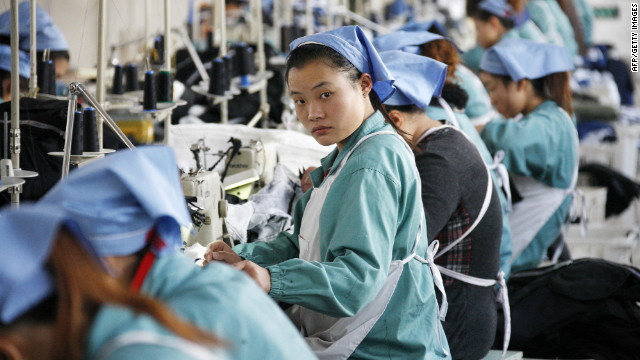|
THE 11th International Apparel, Textile, Footwear and Machinery Trade Exhibition held at the Cape Town International Conference Centre last week has come under fire from the Apparel Manufacturers of SA for undermining the government's policy of reversing de-industrialisation.
SA's clothing and textile manufacturers were battling to compete with low-priced or illegal imports, mainly from the eastern Asia, even before the global recession hit consumer spending.
Many firms, which were substantial employers, have closed their doors in the past few years.
According to a statement from the organisers of the Cape Town conference, LTE SA, more than 120 Chinese clothing and textile manufacturers exhibited at the event, aimed at offering local retailers and importers an opportunity to do business with local and international suppliers.
Although the association supported any trade initiative that tried to introduce developmental trade practices where competition was fair, this expo fell "far short" of such goals, a pparel m anufacturers" spokesman Johann Baard said last week.
LTE MD Deirdre Harte said the conference organisers had tried for years to get the A pparel M anufacturers to exhibit at the show because it attracted a number of top buyers. Although it cost very little to exhibit, and about 20 of the smaller local manufacturers had stands every year, the big clothing companies declined.
"If they don't want to support the exhibition, China will capture their market," she said. Asked whether the association wanted trade expos in this sector banned outright, Baard said the association would prefer SA to engage with its Chinese counterparts at trade association and government level and find a better-thought-out approach to trade expos, so that there was a greater prospect of mutual gain.
National C lothing R etailers F ederation of SA director Michael Lawrence said it was the joy of the free market that everyone had an opportunity to exhibit what they made and why it added value to markets. Managing expos, which in SA were often supported by trade unions, was not the answer.
University of Cape Town school of economics professor Don Ross said Baard seemed to imply that the South African government should prevail upon the Chinese government to interfere with the marketing of Chinese clothing and textile products in SA. Such interference would be illegal under the Uruguay Treaty of the World Trade Organisation.
"It is highly unlikely that interference with clothing and textile trade fairs in SA, even if this were legal, would make any difference to volumes of imports," Ross said.
"Most Chinese-made garments sold in SA are products on the "alue"nd of the continuum, that is, are aimed at the sector of the consumer market that puts most emphasis on attractive prices. Retailers have many channels for becoming aware of new product lines available in this category."
Ross said protectionist measures would make South African clothing less, not more, globally competitive.
|
|
Expo slated over stands from China
Updated: 2009-11-9 Source: mathewsc@bdfm.co.za

Recommended News
Photo Gallery
Most Popular



